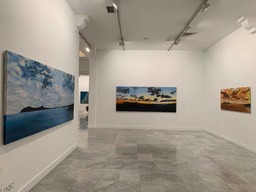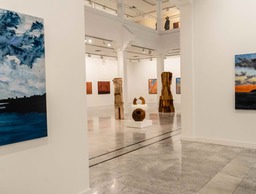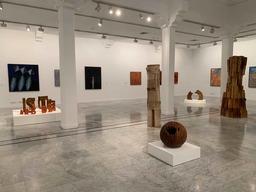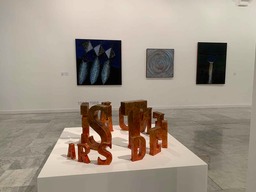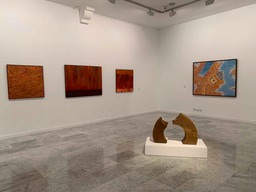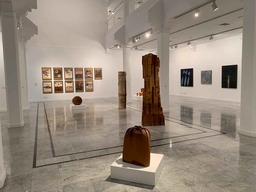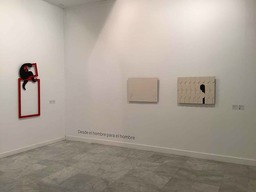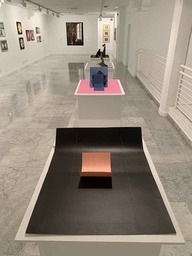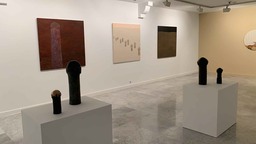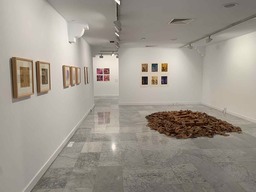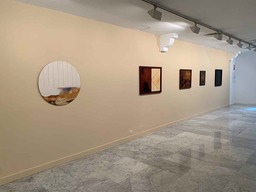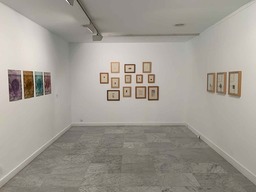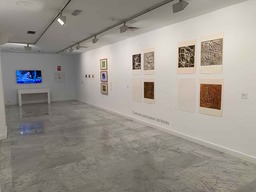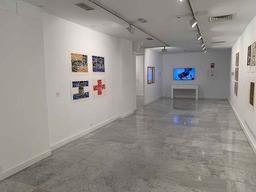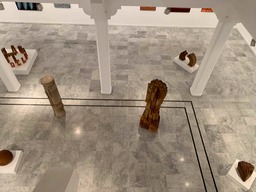Mundos Paralelos (Parallel Worlds) 1974-2020
Alfonso Crujera's retrospective exhibition in the Centro de Arte La Regenta, Las Palmas de Gran Canaria
From November 20th, 2020 to January 16th, 2021
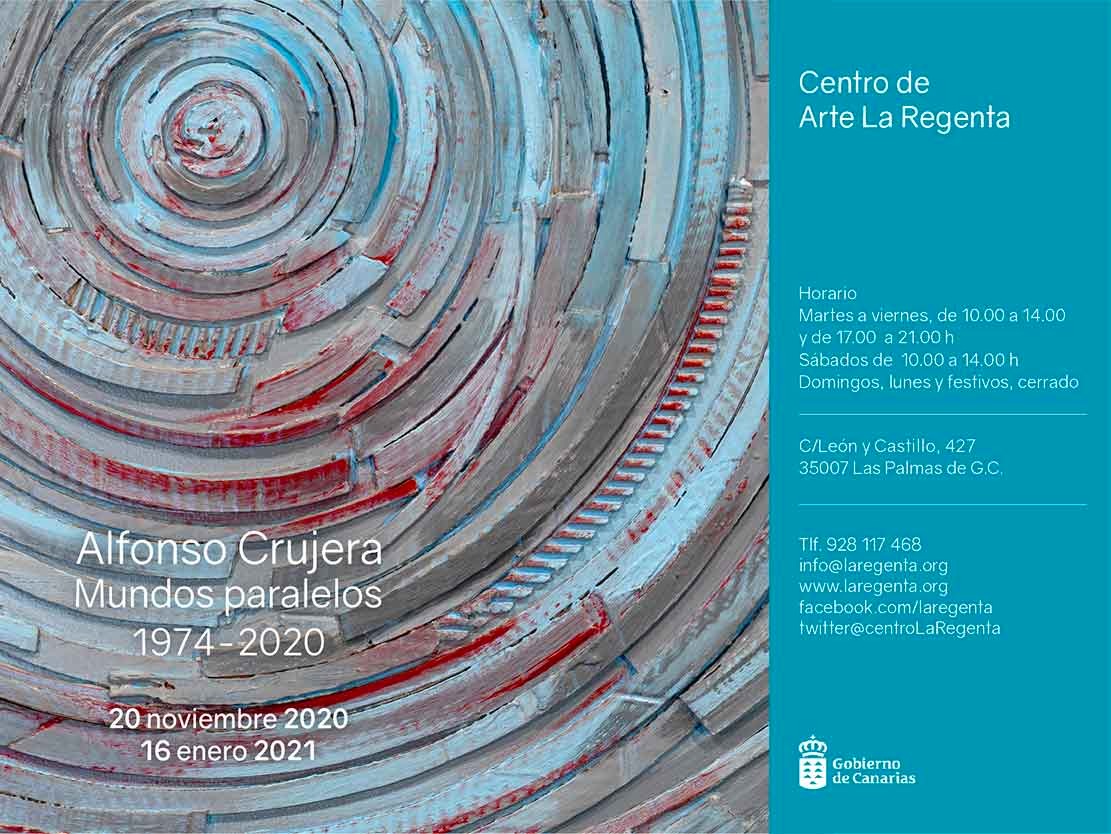
Centro de Arte La Regenta
Calle León y Castillo, 427, 35007 Las Palmas de Gran Canaria, Las Palmas
Horario: Martes a viernes, de 10:00 a 14:00 h y de 17:00 a 21:00 h Sábados de 10:00 a 14:00 h
Domingos, lunes y festivos, cerrado
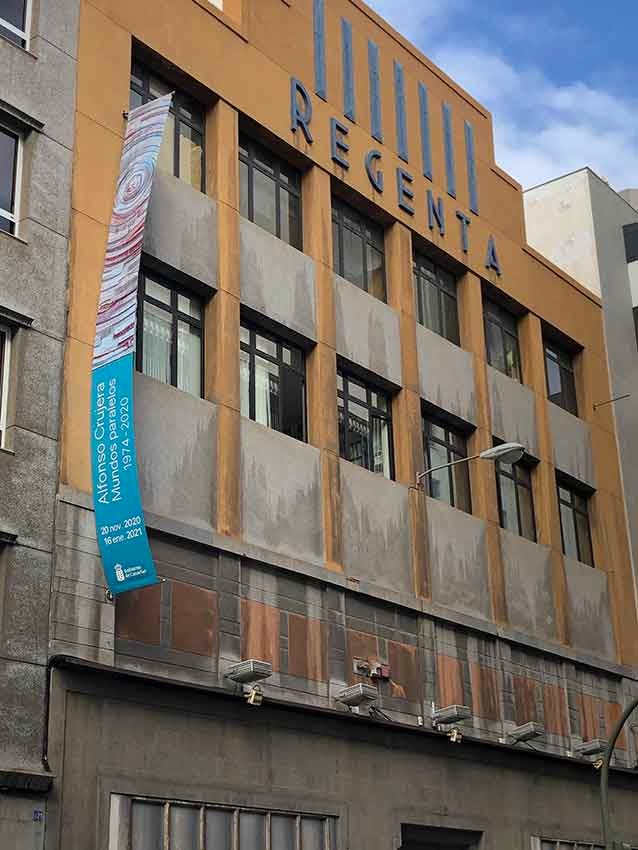
SACRED PLACE
This exhibition called Mundos Paralelos (Parallel Worlds) is the first to chart the development of the artistic career of Alfonso Crujera to date. Over one hundred pieces including sculpture, paintings and prints are on exhibit, revealing some of the central themes of his work. On this occasion, the artist has decided not to include his work in the theatre, with the independent experimental group "La Zapatilla" (The Slipper) in the Sixties and in the area of performance with UG MOTYVACYONES in the mid-Seventies, reserving the same for a future exhibition.
The exhibition curated by Antonio P. Martín allows us to chart how Crujera develops one of the basic themes underlying his work in relation to space and place, territory. First, we are presented with the series "Desde el hombre para el hombre" (From Man to Man) (1974), a preliminary re-interpretation in political key of human landscapes, to be read within the historical context of the last dying breaths of Franco's rule in Spain. This leads us to his "Tríptico de iniciación” (The Initiation Triptych) (1978) and his first visual essays in the field of lanscape in 1980. The timeline continues with his first incursion into the realm of the sacred, that gave rise to the series known as “Betilos” (Sacred Stones) (1988-1998). Gradually, the two realms come together and a year later the series "Tools" was to be produced by way of prologue to a seies of paintings titled “Strand” (1990) that lead into his three-dimensional structures in terracotta: “Obra solar” (Solar Work) (1992).
Crujera was already dabbling in the world of prints throughout these first two decades, and produced his first electro-etchings in 2001. In 2002, he began to produce electro etchings that gave rise to the series based on “La Punta del Caletón”, that he presented, together with paintings, under the title of "LPGC" in 2007. This is a new interpretation of territory as opposed to the void upon which a city is projected, another key theme in his work, producing a model image upon which to project light and shade. One year later, he brought out his publication, “Manual del grabado electrolítico no-tóxico" that he was to edit into an English version, the“Electro-etching handbook” five years later in 2013. The handbook is now a classic reference on the subject worldwide. Electro-etchings form the bases of the series "Galvanografías”(Electro-plates) (2007- 2008) and “Grabatos para pasar las horas“ ("Doodle-chings to pass the time) (2008-2019).
The exhibition closes with his most recent reflections on place and the sacred: the series of canvases called “Sacred Place” (2020).
Franck González
We are very grateful to Margaret Hart Robertson for the English translations of the texts (including the catalog writings, see below).
Exhition setup
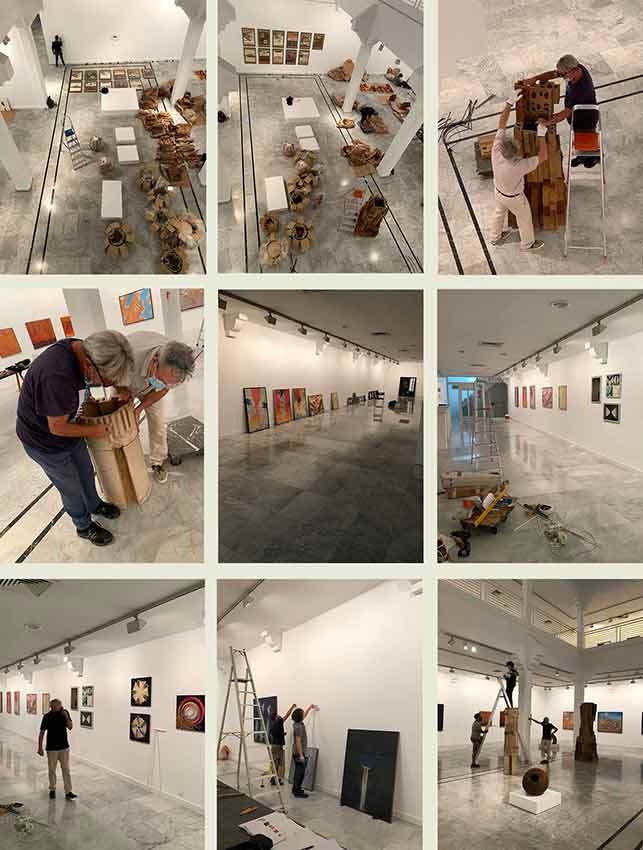
Fotos de la exposición
Centro de Arte La Regenta Alfonso Crujera en La Regenta y actividades relacionadas con la exposición
Calalog Texts
Isabel Corral, 'Parallel
Worlds'... Pebbles Babbling In My Memory
Franck González, Three Hours For A Day
Juan Ezequiel Morales, Alfonso Crujera, Philosophical Notes On His Life And Work
Press releases
Telvisión Canaria, 19-11-2020. Noticias
Canarias 7 20-11-2020. Crujera esboza en La Regenta cinco décadas de expresión artística.
